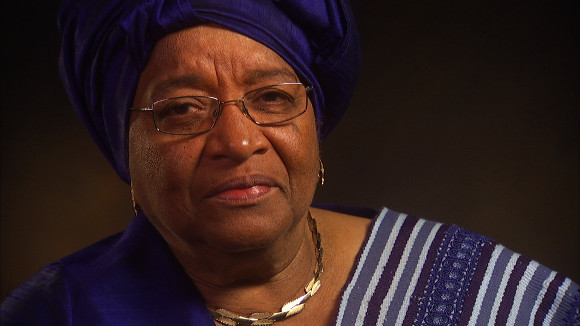
Born in 1938 to a family in Monrovia, Ellen Johnson Sirleaf is the current President of Liberia. Before becoming actively involved in politics, especially that of her native country, Johnson travelled to the United States to acquire higher education after graduating from the College of West Africa.
Doing her Bachelors in Accounting from Madison Business College, Johnson received a degree in Economics from the University of Colorado followed by Masters in Public Administration from Harvard University. However, Johnson returned to Liberia after completing her education.
Upon entering the government service in Liberia, Johnson served as Assistant Minister of Finance under President William Tolbert’s administration from 1972 to 1973. She was then promoted to the position of Finance Minister during Samuel K. Doe’s military reign in 1980.
During the latter’s rule, however, Johnson faced various hurdles and was imprisoned twice, narrowly escaping execution on one of the occasions. By 1985, Johnson had established a financially stable and steadfast role for herself and decided to run for a seat in the Senate, leading herself to ten years in jail after she denounced Doe’s administration.
She was allowed to leave the country after a while and proceeded to serve financial institutions such as World Bank and Citibank as an economist. Returning to Africa for the third time, Johnson became the Director of Regional Bureau for Africa for the United Nations Development Programme for five years.
Ellen Johnson Sirleaf ran for Presidential elections in 1997 but lost the position to Charles Taylor who had previously rebelled against Doe and now charged Johnson with treason. Facing exile once again, Johnson started campaigns against President Taylor and took over as the leader of the Unity Party when he was sent into exile in the early 2000s. In 2005, Johnson successfully ran for elections again and assumed the role of President of Liberia. Known as the Iron Lady, Johnson was Africa’s first elected female Head of State.
Even though she faced various challenges soon after gaining presidency, including an unemployment rate of almost 80%, Johnson was quick in overcoming all such problems with the help of international aid and improvement in the state’s debt. Along with completely erasing debt from the country and securing millions of dollars of foreign investment, the President established a Truth and Reconciliation Committee to investigate into corruption.
Having initially pledged to serve as president for only a single term, Johnson announced herself as a candidate for the 2011 elections as well, declaring that she still had unfinished business to take care of. A small opposition group challenged eligibility of a number of candidates, including Johnson, pointing towards a constitution which stated that all candidates were to have resided in Liberia for a period of at least 10 years before the 2011 elections.
These allegations were, however, refuted by the Supreme Court and Johnson, yet again, acquired the highest number of votes in the 2011 elections, entering her second spell at the office.
In the same year, Ellen Johnson Sirleaf, Leymah Gbowee and Tawakkol Karman were awarded the Nobel Peace Prize for their contributions towards ‘the safety of women and women’s rights to full participation in peace-building work’.
